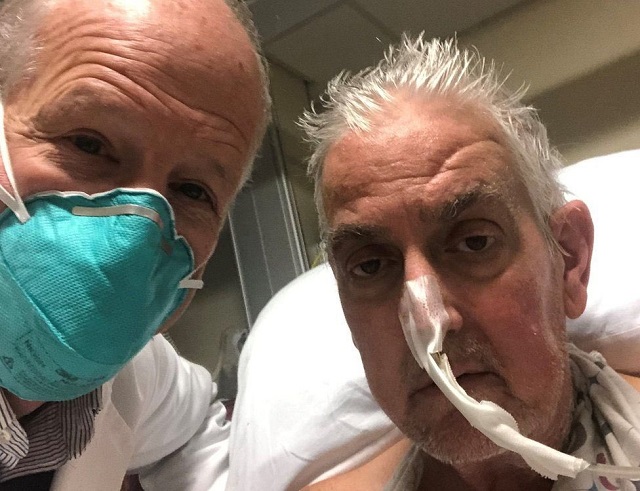
Washington, U.S. | Xinhua | The world’s first person receiving a heart transplant from a genetically-modified pig two months ago has died, the U.S. Maryland hospital that performed the surgery announced on Wednesday.
David Bennett, the 57-year-old American patient, died Tuesday at the University of Maryland Medical Center (UMMC). Doctors did not give an exact cause of death, saying his condition had begun deteriorating several days earlier.
After it became clear that he would not recover, Bennett was given compassionate palliative care. He was able to communicate with his family during his final hours, said the UMMC in a release.
Bennett received the first-of-its-kind transplant on Jan. 7, and lived for two months following the surgery. He had been deemed ineligible for a conventional heart transplant, and the surgery was the only currently available option for him, according to the UMMC.
The U.S. Food and Drug Administration granted emergency authorization for the surgery on New Year’s Eve through its expanded access (compassionate use) provision.
After the surgery, the transplanted heart performed very well for several weeks without any signs of rejection, according to the UMMC.
Bennett was able to spend time with his family and participate in physical therapy to help regain strength. He watched the Super Bowl with his physical therapist and spoke often about wanting to get home to his dog Lucky, according to the hospital.
Bartley Griffith, who performed the groundbreaking transplant, said Bennett proved to be a brave and noble patient who fought all the way to the end.
“As with any first-in-the-world transplant surgery, this one led to valuable insights that will hopefully inform transplant surgeons to improve outcomes and potentially provide lifesaving benefits to future patients,” Griffith said.
“We have gained invaluable insights learning that the genetically modified pig heart can function well within the human body while the immune system is adequately suppressed,” said Muhammad Mohiuddin, professor of surgery and scientific director of the Cardiac Xenotransplantation Program at the University of Maryland School of Medicine.
“We remain optimistic and plan on continuing our work in future clinical trials,” he said.
About 110,000 Americans are currently waiting for an organ transplant, and more than 6,000 patients die each year before getting one, according to U.S. government data.
*****
Xinhua
 The Independent Uganda: You get the Truth we Pay the Price
The Independent Uganda: You get the Truth we Pay the Price





